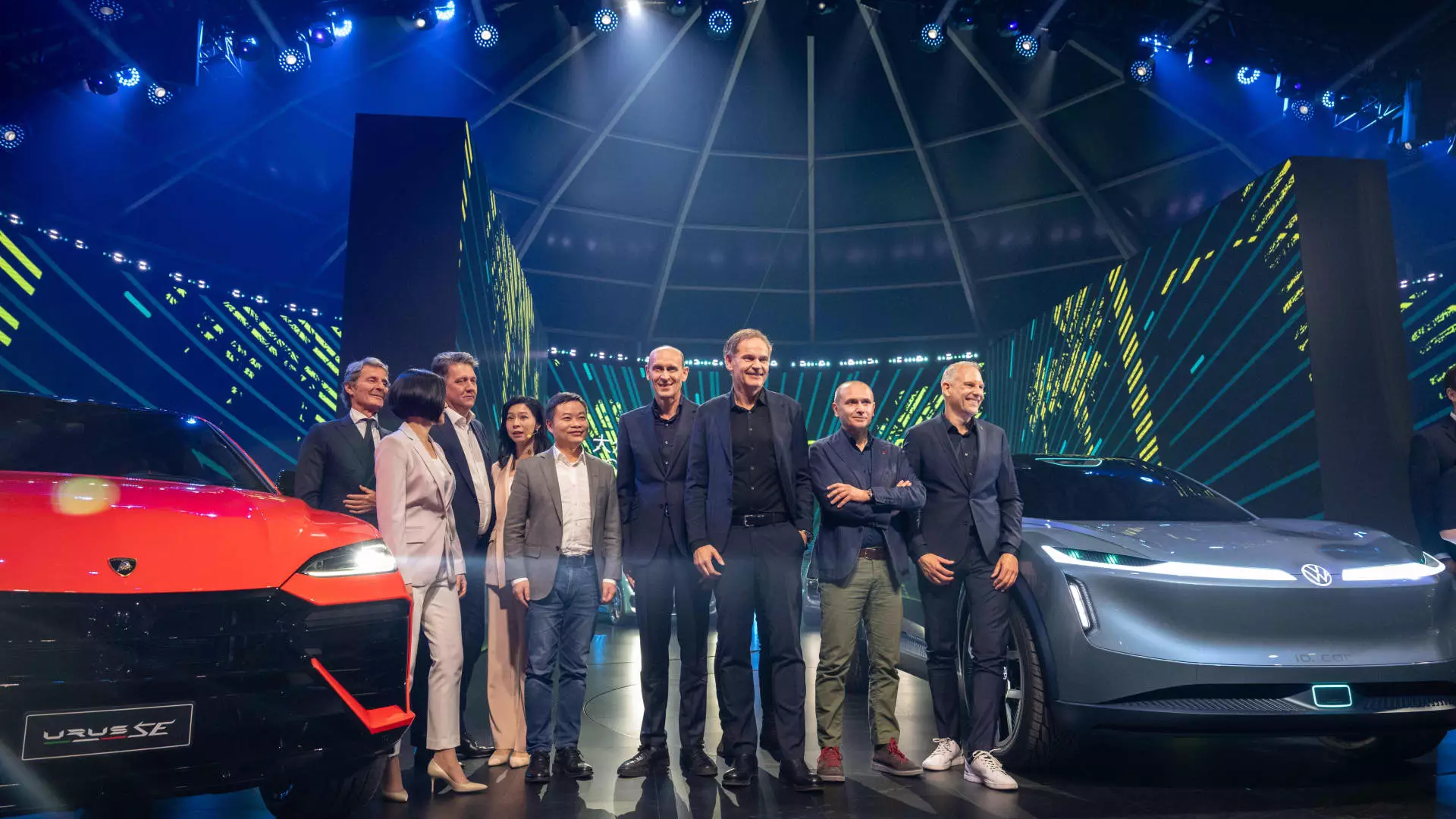In a significant move for the electric vehicle (EV) industry, Volkswagen and Xpeng have announced a bold expansion of their partnership focused on electric vehicle charging infrastructure in China. This collaboration, underscored by a newly signed memorandum of understanding, opens the doors to a substantial increase in the availability of super-fast charging stations. The two companies aim to create a vast network that will encompass over 20,000 charging points across 420 cities in China, providing critical infrastructure for EV users. This expansion is not merely tactical; it reflects a broader trend in the automotive industry where charging infrastructure is rapidly becoming a competitive advantage.
Volkswagen’s initiative to join forces with Xpeng highlights the escalating need for efficient charging solutions amidst a surge in electric vehicle adoption. As more consumers consider electric options, the availability of charging stations emerges as a pivotal factor in their decision-making process. The partnership ensures that customers from both companies will have access to each other’s charging networks, enhancing the convenience and appeal of driving an electric car. The positive market response was palpable, with Xpeng shares reflecting a 3.4% increase and Volkswagen enjoying a 2% rise in early European trading following the announcement. This joint effort could potentially accelerate the shift towards EVs, as it aims to tackle one of the biggest hurdles in the industry—charging accessibility.
Olaf Korzinovski, the executive vice president of Volkswagen Group China, expressed enthusiasm about this collaboration, emphasizing the goal of creating one of the largest super-fast charging networks in the country. The plan to implement co-branded charging stations suggests a strategic approach to coexistence in the highly competitive EV market. By leveraging each other’s strengths, both firms are positioning themselves not just for immediate gains but also for sustainable growth as the market evolves. This partnership signifies a critical step towards making electric mobility feasible for everyday consumers in urban as well as rural locations.
As charging points become a critical battleground for EV manufacturers, Volkswagen and Xpeng must contend with competitors like Tesla, which has already established a substantial Supercharger network in China. In this race for dominance, Volkswagen is also making significant investments in the Chinese market, such as its recent $700 million acquisition of a 4.99% stake in Xpeng. This underscores the importance Volkswagen places on the Chinese market, where demand for electric vehicles is rapidly increasing.
In addition to expanding charging infrastructure, Volkswagen and Xpeng plan to jointly develop two new electric vehicle models, set for release in 2026. This venture represents a long-term commitment to shaping the future landscape of electric mobility. As both companies work toward offering an array of electric models, their strategic alliance stands as a testament to the collaborative spirit required to meet the challenges of the evolving automotive market. The road ahead looks promising as these giants of the automotive industry pave the way for a more interconnected and sustainable future in electric transportation.

